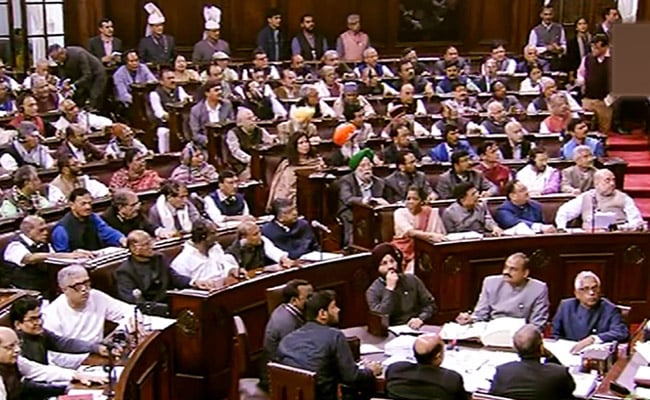
The Citizenship (Amendment) Bill, which provides for Indian citizenship to non-Muslims who left Afghanistan, Bangladesh and Pakistan and entered India before 2015, has passed the test in the lower and the upper houses of the parliament. It will now go to the President for his assent. With the passing of the Bill, lakhs of immigrants from religious minorities - Hindus, Sikhs, Buddhists, Jains, Parsis and Christians - will get Indian citizenship, even if they do not have any document to prove their residency. The opposition parties have also been criticising the government for excluding the Muslims from Nepal and Sri Lanka.
Citizenship (Amendment) Bill: All You Need To Know About The History, Provisions, Exemptions
Under the Foreigners Act, 1946, and the Passport (Entry into India) Act, 1920, an illegal migrant, who enters the country without any valid travel documents, or enters with valid documents but stays beyond the permitted time period, cannot become a citizen of India and would be deportedd or imprisoned. However, the BJP-led NDA government brought the Citizenship (Amendment) Bill in 2015-16 and was it referred to a Joint Parliamentary Committee.
The government's Citizenship (Amendment) Bill amends the Citizenship Act of 1955 and makes illegal migrants from religious minorities - Hindus, Sikhs, Buddhists, Jains, Parsis and Christians - from Afghanistan, Bangladesh and Pakistan, who entered India on or before December 31, 2014, eligible for Indian citizenship.
The Citizenship (Amendment) Bill got the clearance from the Lok Sabha on December 10 with 311 MPs voting in favour and 80 against the Bill. It passed the test in the Rajya Sabha on December 11 after political opposition with 125 votes in favour and 99 votes against the landmark Bill.
Apart from the BJP, the parties who voted in favour of the Bill included its allies - Janata Dal (United), AIADMK, Biju Janata Dal (BJD), Telugu Desam Party (TDP) and YSR-Congress Party. The Shiv Sena did not participate in the voting.
According to the Citizenship (Amendment) Bill, the requirement of residence has been relaxed. Now the Indian citizenship will be granted to the immigrant who has lived in India in the last one year and at least five of the last 14 years. Earlier for the migrants, citizenship by naturalisation was 11 years.
The Citizenship (Amendment) Bill comes with some exemptions too. It exempts the tribal areas of Assam, Meghalaya, Mizoram, and Tripura as included in Sixth Schedule of the Constitution including the tribal areas of Karbi Anglong in Assam, Garo Hills in Meghalaya, Chakma district in Mizoram, and Tribal areas district in Tripura.
The Bill also exempts the areas regulated through the Inner Line Permit in northeastern states of Arunachal Pradesh, Mizoram, Nagaland and Manipur. Most parts of Meghalaya and some parts of Assam and Tripura are also exempted.
A foreigner may register as an Overseas Citizen of India (OCI) under the 1955 Act if they are of the Indian origin (former citizen of India or their descendants) or the spouse of a person of Indian origin.
Assam has been seeing widespread protests after the Bill got passed as Assamese fear that illegal Bengali Hindu migrants from Bangladesh will threaten cultural and linguistic identities of the state.
To repeated questions from the Opposition of Muslims being left out, Home Minister Amit Shah said Muslims from other countries have the right to apply for Indian citizenship per the existing rules. As many as 566 Muslims have been given citizenship, he said in the Rajya Sabha.

